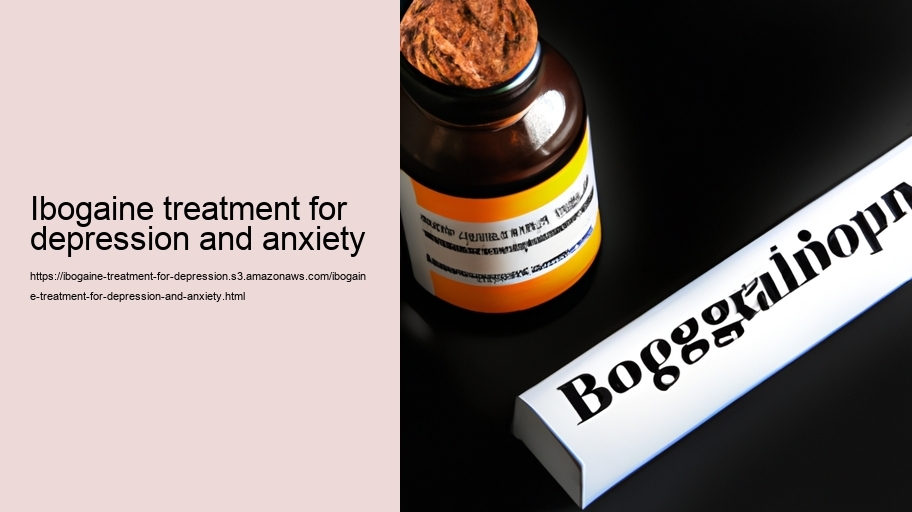Title: Exploring the Potential of Ibogaine Treatment for Depression and Anxiety
Introduction
In the ongoing quest to find effective treatments for mental health disorders such as depression and anxiety, an unconventional candidate has emerged from the traditional medicine cabinet of West Central Africa – ibogaine. Derived from the root bark of the African shrub Tabernanthe iboga, ibogaine is a psychoactive compound that has been used for centuries in spiritual ceremonies by indigenous peoples. However, its potential therapeutic uses, particularly in treating depression and anxiety, have recently caught the eye of Western medicine.
Body
The scourge of depression and anxiety disorders presents a serious global health challenge. Conventional treatment options like antidepressants and therapy are not always effective for all patients, leading some to seek alternative treatments. Ibogaine offers hope with its unique pharmacological profile that affects various neurotransmitter systems involved in mood regulation.
Ibogaine's Mechanism Of Action:
Understanding how ibogaine works requires delving into brain chemistry. It primarily acts on the serotonin system - which regulates mood - but also impacts other neurotransmitters like dopamine and glutamate. Its action seems to reset these chemical pathways, providing what some describe as a 'clean slate' psychologically.
Anecdotal Evidence And Preliminary Studies:
Most evidence supporting ibogaine's efficacy comes from personal accounts and limited clinical research focused on substance addiction rather than depression or anxiety specifically. Individuals report profound introspection during their experiences that may lead to emotional breakthroughs contributing to mental wellness.
Yet despite these promising narratives, scientific validation remains scarce due to legal restrictions and logistical challenges surrounding ibogaine research. What few studies exist show mixed results; while some suggest possible benefits for mood disorders, others highlight risks associated with its use.
Safety Considerations:
One cannot overlook safety concerns when discussing ibogaine treatment. The drug can cause significant cardiovascular issues among other side effects; hence it is not approved by many regulatory agencies like the FDA. Any consideration of its use must prioritize strict medical supervision and thorough screening for underlying health conditions.
Legal And Ethical Issues:
In countries where it is unregulated or illegal, accessing safe and controlled ibogaine treatment becomes difficult – raising ethical questions about denying potentially beneficial treatments due to legislative barriers.
Conclusion
Ibogaine's intriguing potential as a treatment for depression and anxiety sparks curiosity amidst desperation felt by those whose lives are burdened by these conditions. Nonetheless, caution must be exercised given the lack of comprehensive clinical data on efficacy and safety alongside considerable legal hurdles.
For now, it represents both hope and controversy in equal measure—a substance shrouded in mystery demanding rigorous scientific scrutiny before we fully embrace it within psychiatric care protocols. Until then, individuals considering this option should proceed with caution under professional guidance while society continues exploring new frontiers in mental health interventions.
